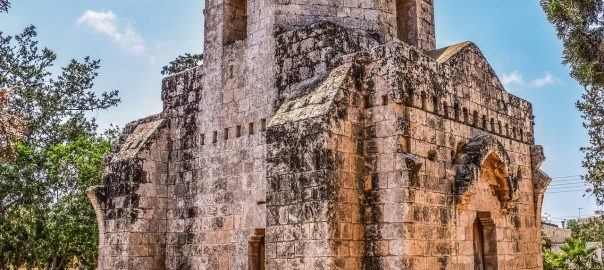The story of Saint Patrick is a fascinating one, and has something to teach us today.
He lived in the 4th-5th century; born in Britain- his father was a deacon and his grandfather was a church leader. Patrick was kidnapped and enslaved, taken from his family at 16, and made to be a pig-hearder in Ireland.
One day he escaped, and worked his way back home to Britain on a ship. Returning to his family, then he felt called to be a priest, which took him to Rome. One day he had a vision-heard the voice of the people of Ireland calling him “Return and walk among us once again.” The people who had enslaved him for several years, keeping him from his family, making him live outside as a pig herder… What would make it possible for him to do this? He not only forgave them, he returned to them as a missionary-priest.
WHY we find it difficult to forgive:
Ask non-christians to quote Jesus’ teaching, and “forgive your enemies” is one of the most quoted. It’s one of the core teachings that drew Gandhi’s admiration. Yet, universally, people struggle to forgive. Why do we find it so difficult to forgive?
We have a sense of justice, as long as it applies to everyone else, whereas we would rather have mercy, grace, and forgiveness applied to our injustices.
Patrick, when out in the countryside by himself, would recite any thing he could remember. Any scripture, any song, any psalm, any prayer. What’s one prayer almost every believer knows? The Lord’s Prayer, no doubt Patrick had this in his heart and his mind.
Matthew 6:12-15
forgive us our sins, as we have forgiven those who sin against us…If you forgive those who sin against you, your heavenly Father will forgive you. But if you refuse to forgive others, your Father will not forgive your sins.
That’s what made it possible for him to return to Ireland and it’s people.
What happens when we don’t forgive: Someone said it’s like drinking poison and expecting the other person to get sick. Dr. Robert Enright is a professor at the University of Wisconsin at Madison. He found in his research that unforgiveness causes cardiovascular disease, high blood pressure, hypertension, cancer & psychosomatic illness.
Ephesians 4:31-32 tells us:
Get rid of all bitterness, rage, anger, harsh words, and slander, as well as all types of evil behavior. Instead, be kind to each other, tenderhearted, forgiving one another, just as God through Christ has forgiven you.
When we live in a state of non-forgiveness it can effect us mentally, spiritually, and even physically. But developing the spiritual discipline of forgiving, the power of forgiveness, can set us free and heal us.
Jesus’ example to us in Luke 23 verse 34: Jesus said, “Father, forgive them, for they do not know what they are doing.”
When Christ hung on the cross and said “Father forgive them-“ he meant me and you as much as he meant the soldiers at Golgotha that day. If we are truly His disciples then we continually seek to develop the discipline of forgiveness in our live, following Jesus’ example. Saint Patrick exemplified this well in his life and ministry, making his enemies his friends.









